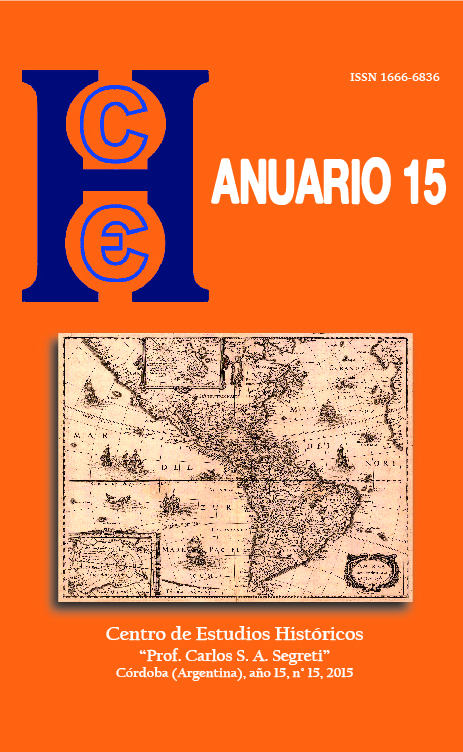The Divinization of Aeneas in Lazio: From a Missing Hero to Pater Indiges
DOI:
https://doi.org/10.52885/2683-9164.v0.n15.21420Keywords:
Aeneas, deification, myth, Lavinium, Ancient Lazio, ArchaeologyAbstract
The deification of Aeneas is the aspect of a myth with several temporal layers that are recorded in the literature of the Principate and especially in the Aeneid. We propose in this paper a mapping of this issue - and the epithet itself, Indiges - in the Greek and Latin authors previous to Virgil as well as in the archaeological documentation, given their relation to the topography of the ancient Lazio. The article is a description of the apotheosis from the sources listed and an assessment of the question of what has been studied about. Well before the Iulii Caesaris inserted themselves in the family tree of this hero, claiming descendancy from Ascanio / Iulo, several indications suggest the existence of a cult of Aeneas as the founder of Lavinium. Through the testimony of Cato, Cassius Hemina and more specifically of Dionysius of Halicarnassus and Livy, we know that the son of Venus and Anchises received a specific kind of worship that approached him to the chthonic deities and linked him to a possible heroon /cenotaph.Downloads
References
CATO. Origines. In: CORNELL, T.J. (g.e); BISPHAM, E.H. ; RICH, J.W. ; SMITH, C.J. (eds.) [et al.], The fragments of the Roman historians, Oxford University Press, 2013.
DIODORO SICULO, Biblioteca Storica, Trad. Giuseppe Cordiano e Marta Zorat, Milano, Bur, 2014.
DIONYSIUS OF HALICARNASSUS, The Roman Antiquities, Trad. Earnest Carry. London, William Heinemann, 1960. (The Loeb Classical Library).
EMINA, I frammenti di L. Cassio Emina, Trad. Santini. Pisa, Testi e Studi di Cultura Classica, 1995.
ENNIUS, Annals, Trad.Ed. E.H. Warmington. Harvard, University Press, 2006 (The Loeb Classical Library). Vol 1.
HEMINA, Annals, Trad.J. Briscoe. In: CORNELL, T.J. (g.e); BISPHAM, E.H.; RICH, J.W. ; SMITH, C.J. (eds.) [et al.] The fragments of the Roman historians,Oxford University Press, 2013.
HESIOD, Theogony, Works and Days. Testimonia, Trad. Glenn W. Most. Harvard, University Press, 2006. (The Loeb Classical Library).
HESIOD, Theogony, Works and Days. Testimonia, Trad. Glenn W. Most. Harvard, University Press, 2006. (The Loeb Classical Library).
HOMERO, Ilíada, Trad. Haroldo de Campos, São Paulo, Arx, 2002.
HOMERO, Odisséia I– Telemaquia, Trad. Donaldo Schüler, Porto Alegre, L & PM, 2007
HOMERO, Odisséia II– Ítaca. Trad. Donaldo Schüler, Porto Alegre: L & PM, 2007.
HOMERO, Odisséia II– Regresso, Trad. Donaldo Schüler, Porto Alegre: L & PM, 2007
OVID, Fasti, Trad James George Frazer, Harvard, University Press, 1989.
OVID, Metamorphoses, Trad. Hugo Magnus, Boston, Brookes More & Cornhill Publishing, 1922.
OVID, Tristia, Trad. Arthur Leslie Wheeler, London, William Heinemann, 1939. (The Loeb Classical Library).
OVIDIO, I Fasti, Trad. Luca Canali, Milano, Bur Rizzoli, 2011.
OVÍDIO, Tristezas –Ponticas, Trad. Eulogio Baeza Ângulo, Madrid, Akal, 2010.
Downloads
Published
How to Cite
Issue
Section
License
Aquellos autores/as que tengan publicaciones con esta revista, aceptan los términos siguientes:
- Los autores/as conservarán sus derechos de autor y garantizarán a la revista el derecho de primera publicación de su obra, el cuál estará simultáneamente sujeto a una Licencia de reconocimiento de Creative Commons. Se puede compartir, copiar, distribuir, ejecutar y comunicar públicamente la obra, siempre que: a) se cite la autoría y la fuente original de su publicación (revista, editorial y URL de la obra); b) no se use para fines comerciales; c) no se altere, transforme o genere una obra derivada a partir de esta obra.
- Los autores/as podrán adoptar otros acuerdos de licencia no exclusiva de distribución de la versión de la obra publicada (p. ej.: depositarla en un archivo telemático institucional o publicarla en un volumen monográfico) siempre que se indique la publicación inicial en esta revista.
- Se permite y recomienda a los autores/as difundir su obra a través de Internet (p. ej.: en archivos telemáticos institucionales o en su página web) después del proceso de publicación, lo cual puede producir intercambios interesantes y aumentar las citas de la obra publicada. (Véase El efecto del acceso abierto).


